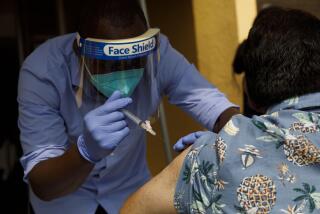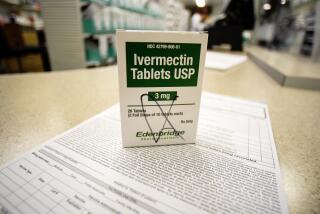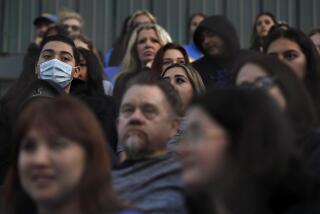Doctors really want to vaccinate Black people against COVID-19. Unequal access to shots fuels mistrust
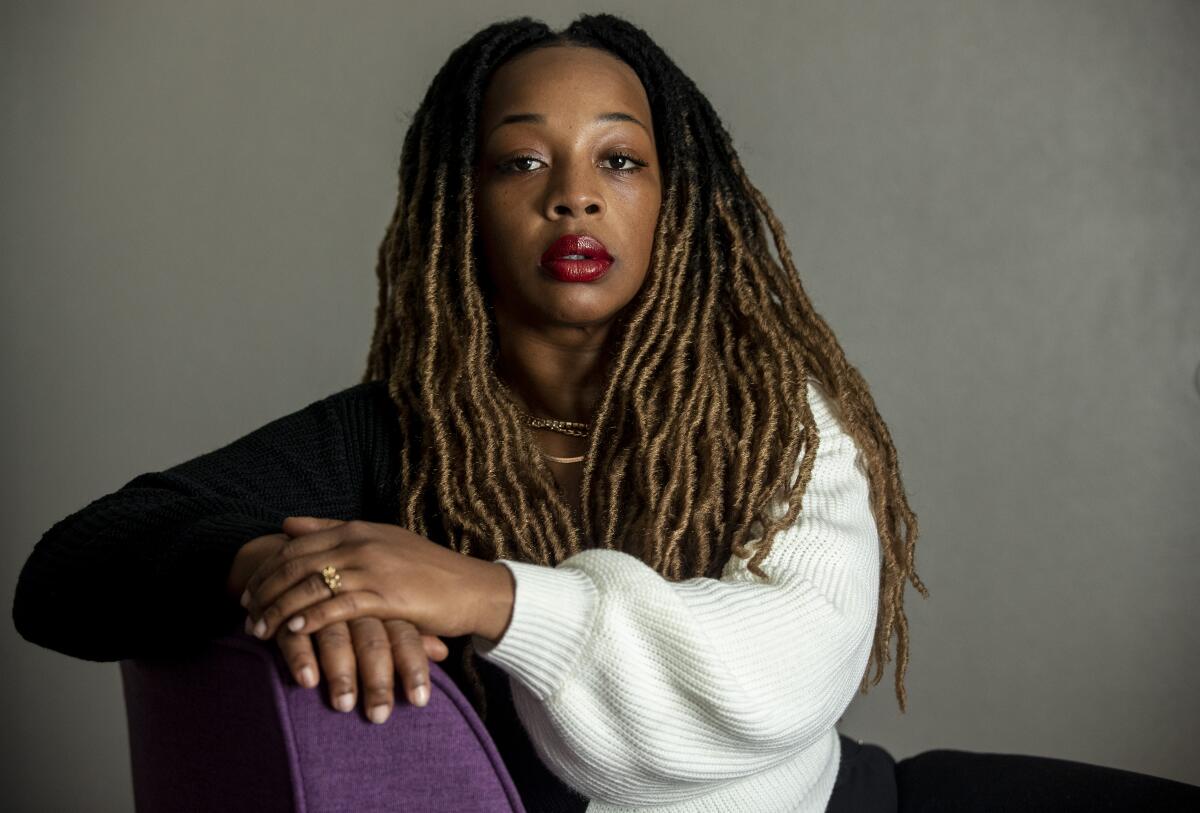
Though the novel coronavirus has claimed more than 2 million lives around the world, Nailah Thompson has no plans to take the vaccine touted as the key to climbing out of a deadly pandemic and battered economy.
Thompson listens as public health officials implore Black people to move beyond their skepticism and have faith in medical ingenuity. Thompson sees Black doctors, like John Wesley Patton III, enthusiastically publicize the moment they get vaccinated and stress the importance of inoculation.
The suffering the deadly virus inflicts is “no joke,” the anesthesiologist wrote in a January Instagram caption. “Trust science. Don’t lose hope. Stay together. We’re gonna get through this.”
But even if they come from other Black people like Patton, the words don’t penetrate Thompson’s mental barricade.
The Sacramento resident is not really fearful of the science behind the vaccine but has a deep mistrust in government she said has failed Black people again and again.
“We’ve still not received justice for Breonna Taylor or George Floyd,” Thompson, 30, said. “If the government is concerned about Black lives, it should not just be to end this pandemic.”
The reasons for Black Americans’ widespread mistrust are numerous, and while some are grounded in well-documented abuses of medical experiments, others involve a broader array of issues, from distrust in government stemming from police brutality, the unequal economic impact of the pandemic, higher death rates among Black people and the inequitable rollout of vaccine distribution.
“If the government really has good intentions, why are white people being vaccinated at significantly higher rates?” Thompson, who founded a Bay Area social justice education nonprofit, asked. “If I did want to take the vaccine, would it be available?”
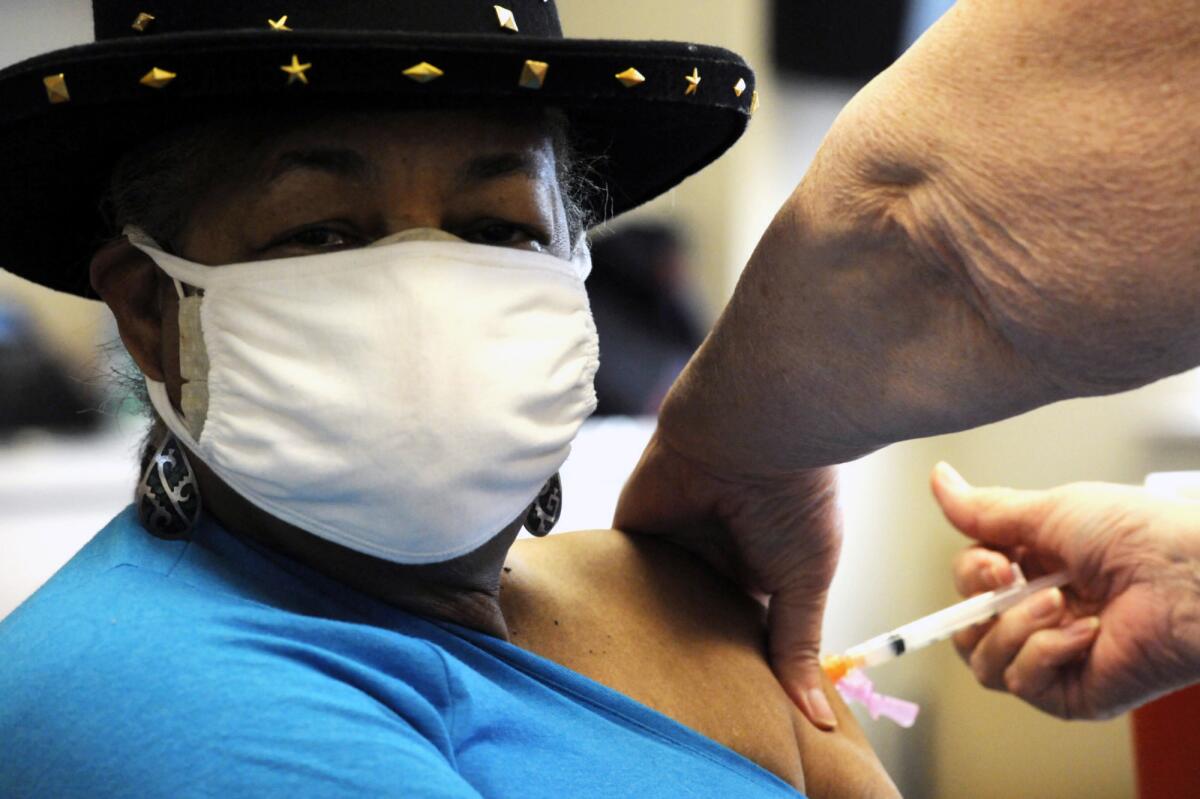
Health experts have long worried that too many Americans would not get vaccinated. The United States needs most of its population to be vaccinated to reach herd immunity. In California, disparate vaccination rates persist.
While Black people are more hesitant to take the vaccines — less than 30% of Black Californians said earlier this year they would probably or definitely get vaccinated — access to vaccination has been unequal.
The L.A. Times revealed a California program intended to improve vaccine availability for Black people had been misused by outsiders, including some wealthy white Angelenos.
Experts say Black people’s mistrust in medicine and government stretches as far back as American slavery when white doctors repeatedly exploited the bodies of enslaved Africans in the name of scientific research.
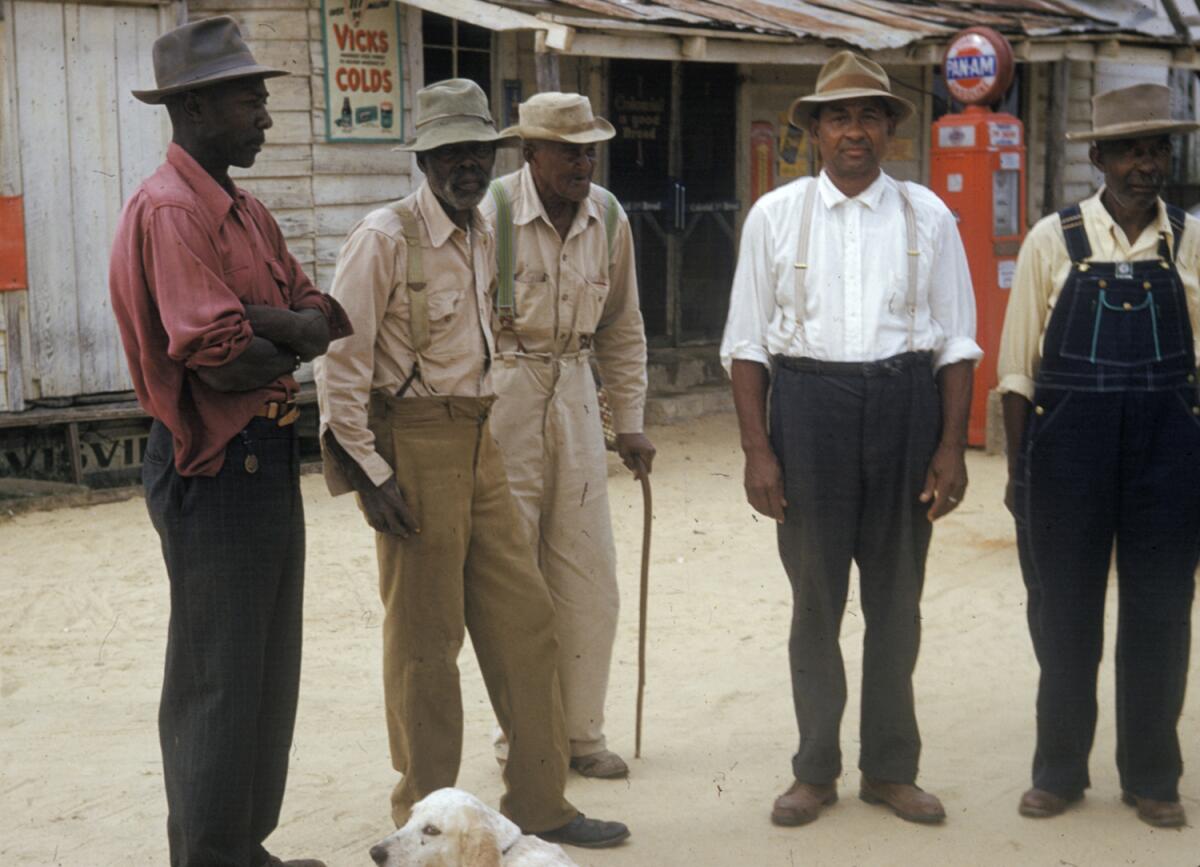
During the Tuskegee syphilis study, conducted from 1932-1972, federal government scientists knowingly withheld treatment from an estimated 400 Black male sharecroppers infected with syphilis, even after penicillin became the drug of choice in the 1940s .
“People thought they were getting treatment,” said David Carlisle, president and chief executive officer of Charles R. Drew University of Medicine and Science. “But they were being abused by an experiment.”
Another factor in sowing mistrust: the lagging representation of Black doctors.
In 1910, Abraham Flexner published a report that led to changes in medical education, but also to the closing five of the seven Black medical colleges. In Flexner’s eyes, Black physicians were better off as hygienists for sharecroppers living on old plantations.
Had the colleges closed in the wake of Flexner’s report remained open, the number of graduating Black physicians in 2019 could have been 29% higher, a 2020 study noted. Black people make up less than 7% of medical students and 3% of America’s physicians despite making up 13% of the country’s population.
Now many Black doctors, like Patton, are using social media to dispel myths and address vaccine hesitancy. The Hollywood resident harnesses the power of his TikTok and Instagram accounts, and their more than 160,000 followers, to try to persuade people to get vaccinated.
Patton said doctors like himself “are having to lead these discussions to learn how to meet our community where we are.”
To do this, Patton does not hold back on addressing racism in medicine.
“Systemic racism is alive and well, especially in healthcare,” Patton, 35, said. But he said that doesn’t mean vaccines don’t work — and that people shouldn’t be getting them to protect themselves and their loved ones, and beat back the pandemic.
“We know vaccines work,” said Patton. “This vaccine helps us avoid death and severe disease.”
Magdala Chery, a Black physician, is intimately acquainted with the impact of COVID-19 — and the reluctance to get vaccinated.
In April and May, the 34-year-old lost both her parents, who lived in New Jersey, to COVID-19.
Her mother died at home and her father died on the floor of a hospital restroom. Their deaths happened just weeks apart. Chery learned about her father’s passing from a phone call in the middle of the night, causing her to battle insomnia for much of 2020. Chery believes she contracted the virus while caring for her ailing parents.
As she recovered, Chery thought about how her situation would have been different if the Trump administration had taken the growing pandemic more seriously.
After recovering from COVID-19, Chery got vaccinated. But she understands why so many people, particularly in the Black community, are still wary.
“If the government won’t tell the truth about the harm they’ve done ... why should Black people believe the government cares when it comes to the vaccine?” said Chery, now a fellow at Harvard’s Commonwealth Fund Fellowship in Minority Health Policy.
The government’s mishandling of the pandemic — including Trump’s repeated falsehoods about the threat posed by the novel coronavirus — the disproportionate way it hit Black people and Chery’s personal experience caused her to launch “Not Just A Black Body,” a campaign that honors lost Black lives, highlights disparities in vaccine access and calls for restorative justice in healthcare on Clubhouse, Instagram and Twitter.
Chery believes the response to the pandemic has improved under the Biden administration. But the way Black people were disproportionally impacted raises many concerns that will continue to complicate efforts to get more vaccinated.
“Why was the federal government okay with deciding Black bodies were disposable when it comes to their deaths and the economic & social implications of this pandemic,” Chery asks.
“They blame Black people for mistrust as if the onus of trust is on us when it’s on the institutions,” she said.
More to Read
Start your day right
Sign up for Essential California for news, features and recommendations from the L.A. Times and beyond in your inbox six days a week.
You may occasionally receive promotional content from the Los Angeles Times.

